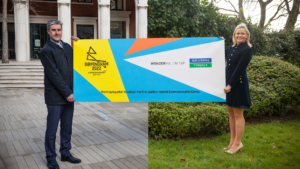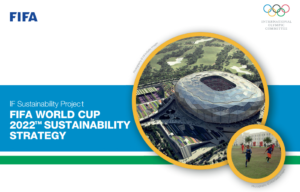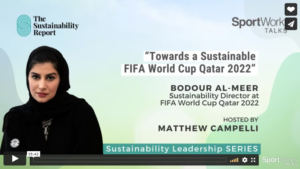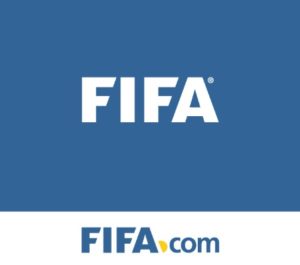
The International Olympic Committee (IOC) and the Union of European Football Associations (UEFA) have investigating improvement opportunities in the area of branding and signage.
Among the various sustainability topics associated with event delivery, reducing the environmental impact of branding and signage solutions has proved a challenging task do date. Few commercially available solutions meet the needs of event organisers in terms of quality, ecology and cost. Besides, ecological claims are rarely supported by credible data based on product lifecycle evaluations, and few products are certified according to recognised ecolabels.
Branding and signage materials are not only a very visible aspect of events; they are often the number one source of single-use plastic, a large part of which is still being landifilled or incinerated.
In this context, the IOC and UEFA commissioned Anthesis, and independant consultancy specialising in environmental impact assessment.
This guideline covers over 40 materials, both commonly used materials as well as more innovative ones, and is a first attempt at improving the knowledge base on this topic.



New guide commissioned by IOC and UEFA helps identify more sustainable solutions for event branding and signage
In an effort to improve the sustainability of events, the International Olympic Committee (IOC) has teamed up with the Union of European Football Associations […]



NZ athletes leap to become climate change champions
More and more Kiwi athletes are becoming aware of their impact on climate change, and want to be part of the solution, Angela Walker […]


Ian Reid: Carbon-neutral pledge fitting way to mark latest Birmingham 2022 countdown milestone
Today we are celebrating 500 days to go until Birmingham 2022, and we’re using this milestone to announce that, thanks to a partnership with […]


In January 2020, the FIFA World Cup Qatar 2022 Sustainability Strategy was published, with five commitments, 22 strategic objectives and over 70 initiatives. The strategy was developed jointly by FIFA, the FIFA World Cup Qatar 2022 LLC and the Supreme Committee for Delivery & Legacy. This unique tripartite collaboration means that the strategy considers all of the tournament organisers' activities, including those of the host country, and builds on the experience and standards of previous FIFA World Cups.
The strategy was developed in three steps: (1) A thorough analysis of the current context and existing strategies and requirements, then (2) the identification of strategic priorities through a materiality assessment and a human rights salience analysis, with both results eventually combined through an innovative process, and finally (3) the definition of concrete objectives and actions. Throughout this process, FIFA and the organisers engaged with internal and external stakeholders to shape an ambitious, meaningful and robust strategy.
Click here to download the case study












Forest Green Rovers and TLT announce partnership deal
A new partnership deal has been announced between Forest Green Rovers (FGR) and top 50 UK law firm TLT, making it the exclusive legal partner for the […]




Sustainability Series – “Towards a Sustainable FIFA World Cup Qatar 2022” – Bodour Al-Meer
SportWorks
As sustainability is incorporated to the sports industry vocabulary, initiatives for greener and socially responsible sports events pop up around the world. FIFA World Cup Qatar 2022 is taking this trend to a next level, following a comprehensive Sustainability Strategy in five domains: environmental, human, economic, social and governance.
In this SportWorks TALK, Bodour Al-Meer, Qatar 2022 Sustainability Director, will give an overview of this strategy, with special focus on results of already-implemented projects. Two examples? All stadiums to be used for the tournament are powered by solar power and are achieving green building certifications. Want to have insights on how the future is being built now?
Click here to access the TALK





12 steps to make sports events more sustainable
Giles Stanford, director, global events, for CSM Live, outlines 12 ways sports right-holders can procure, design and produce more events that take less of […]

UN and FIFA share strategic social goals
The United Nations Deputy Secretary-General Ms. Amina J. Mohammed had a virtual meeting with FIFA President Gianni Infantino in which they exchanged views on […]

Sport Needs Climate Campaign Connects SA Children to the Ocean
I AM WATER’s contribution to the campaign will be focused on getting more under-resourced children connected to the ocean and aware of marine conservation, […]


